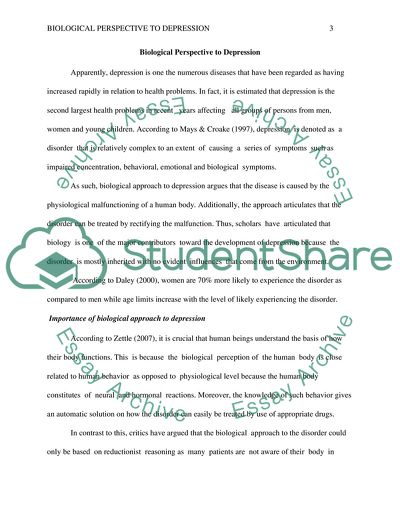Cite this document
(Biological Perspective to Depression Coursework Example | Topics and Well Written Essays - 1250 words, n.d.)
Biological Perspective to Depression Coursework Example | Topics and Well Written Essays - 1250 words. https://studentshare.org/psychology/1821192-biological-approach-to-depression
Biological Perspective to Depression Coursework Example | Topics and Well Written Essays - 1250 words. https://studentshare.org/psychology/1821192-biological-approach-to-depression
(Biological Perspective to Depression Coursework Example | Topics and Well Written Essays - 1250 Words)
Biological Perspective to Depression Coursework Example | Topics and Well Written Essays - 1250 Words. https://studentshare.org/psychology/1821192-biological-approach-to-depression.
Biological Perspective to Depression Coursework Example | Topics and Well Written Essays - 1250 Words. https://studentshare.org/psychology/1821192-biological-approach-to-depression.
“Biological Perspective to Depression Coursework Example | Topics and Well Written Essays - 1250 Words”. https://studentshare.org/psychology/1821192-biological-approach-to-depression.


